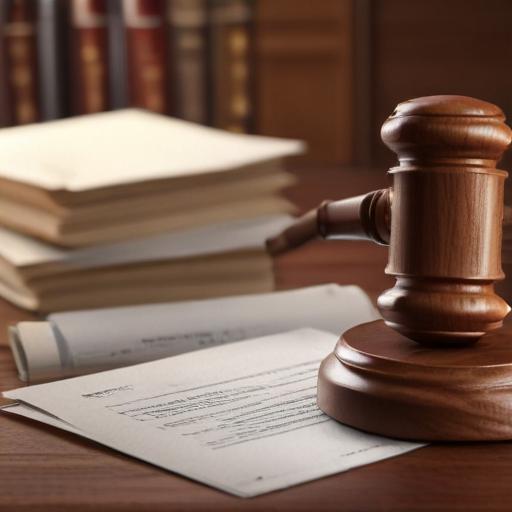Hernandez Govan, the Memphis man accused of masterminding the killing of rapper Young Dolph, is set to stand trial on August 18, more than four years after the Makeda’s Homemade Butter Cookies shooting in Memphis.
The proceedings opened with questions about who directed the hit and how the alleged bounty was supposed to be paid, as prosecutors laid out a conspiracy case involving Govan, one of the gunmen, and others tied to Dolph’s label. The trial includes testimony from Cornelius Smith, one of the men who fired at Dolph, who described how Govan allegedly orchestrated the plan, arranged money, and coordinated cover for the getaway vehicle. Testimony also indicated that Govan discussed payments from a bounty connected to Dolph’s death and provided a small amount of cash to help conceal the white Mercedes used in the attack.
Key details emerged about the alleged chain of involvement. Smith testified that Govan promised to pay him about $10,000 from the bounty and supplied funds to obtain a cover for the car used in the shooting. He described a process of hiding the vehicle and wiping it down after the crime. Prosecutors showed photos linking Govan to Big Jook, Yo Gotti’s brother, who was mentioned in relation to the bounty. Smith said he learned of the bounty while meeting with associates at a Pral restaurant owned by Yo Gotti, and he later learned that the money would be distributed among Govan, Smith, and Johnson, another participant in the crime.
Another witness, Cornelius Smith, who actively participated in the shooting, testified that he met Govan in mid-2021 and that the plan evolved from drug-related activity to a money-making hit. He described a shootout with Paper Route Woo, another rapper on Dolph’s label, after receiving a handgun from Govan. He recalled that the gun jammed and he returned it to Govan’s circle, where a truck tied to Big Jook was involved. Prosecutors presented a photo of Big Jook with Govan to illustrate connections among those involved.
The victims’ family and security team also took the stand. Young Dolph’s sister, Erica Thornton, testified briefly about her last contact with Dolph. Raul Hopkins, Dolph’s longtime security director, recounted previous shootings Dolph survived and walked through surveillance footage from the Makeda’s store on the day Dolph was killed. Hopkins also testified about the moments surrounding the shooting, including the response of Dolph’s brother.
Govan’s defense team pressed to undermine the credibility of key witnesses and the strength of the government’s case. Manny Arora argued that the key question is whether the state can prove Govan’s involvement beyond a reasonable doubt, pointing to inconsistencies in witnesses’ statements and suggesting that phone data and surveillance footage do not conclusively place Govan at the center of the alleged plot. He argued that the investigation itself was flawed and labeled the case as a potential “fall guy” scenario, asserting that prosecutors were pursuing a high-profile arrest rather than a solid conspiracy.
Prosecutors, for their part, framed the trial as a matter of choices and consequences, with opening statements emphasizing Dolph’s legacy and the feud between Paper Route Empire and Yo Gotti’s Collective Music Group. They described a $100,000 bounty tied to Dolph’s murder and alleged that Govan helped the other men execute the plan and then helped dispose of the murder vehicle. Notably, prosecutors told the jury that the earlier charge of attempted first-degree murder against Govan would be dismissed ahead of opening statements.
As the day of testimony progressed, the court reviewed a chain of events from Dolph’s death on November 17, 2021, at Makeda’s Butter Cookies on Airways Boulevard to the aftermath and the ongoing investigation. The defense highlighted that the case hinges on the testimony of the shooters and their associates, while prosecutors maintained that the full scope of the conspiracy was essential to understanding who orchestrated the killing.
The trial marks a continuation in a larger legal saga surrounding Young Dolph’s death, including the conviction of Justin Johnson last year for his role in the shooting. Dolph’s death left a lasting impact on Memphis’ music community, with his legacy continuing to influence artists and fans.
What to watch for going forward:
– Additional witness testimony detailing the alleged hierarchy and payments connected to the bounty.
– Defense challenges to the reliability of witnesses and the interpretation of phone data and surveillance footage.
– The progression of the trial as jurors weigh whether Govan acted as the “mastermind” of the plot against Young Dolph.
Context and background:
– Young Dolph was killed inside Makeda’s Cookies in November 2021 in what prosecutors described as part of a broader music-label feud and a planned hit tied to members of Paper Route Empire and rival figures.
– The case connects to a wider narrative in Memphis about violence surrounding rap music titans’ business and personal disputes, with previous trials contributing to a broader understanding of the events and the players involved.
Summary:
The Govan trial is proceeding with prosecutors presenting a conspiracy theory centered on Govan’s alleged leadership and the payment of a bounty, while the defense questions the credibility and sufficiency of the evidence tying him to the murder. The proceedings will continue as more witnesses are called and jurors assess the disparate pieces of a complex case that has drawn national attention to Young Dolph’s legacy and the violence surrounding the rap industry. If the jurors find the government’s case compelling, it could finalize a key chapter in a case that has already seen related convictions.
